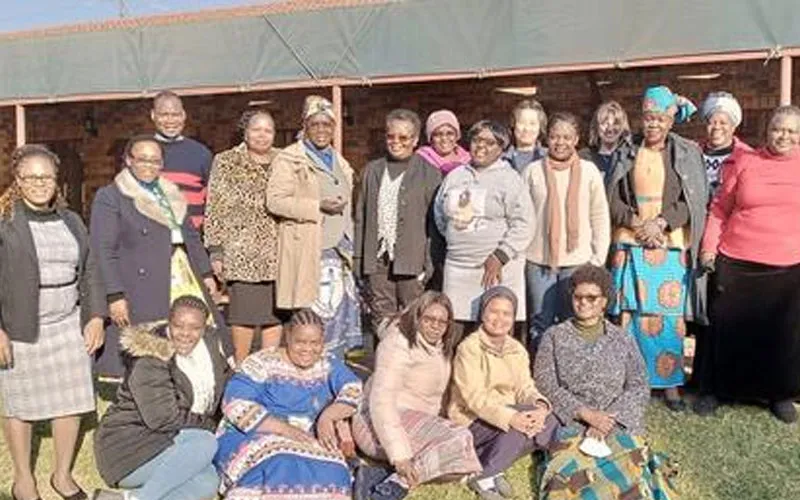There is need to make Papal documents accessible to all, “otherwise that void between the Church leaders, the clergy, and the community will remain,” she said during the workshop that was held at held at Padre Pio Retreat Center in Pretoria
“This gap, this void of not having access to information, not having access to those important debates about the Pope’s Encyclicals or Pastoral Letters is a cause for concern; it’s important to share information so that we can walk together,” Ms. Jamal said on the sidelines of the IMBISA workshop.
The four-day workshop that concluded on June 9 brought together representatives of Catholic Women Associations from Angola, Botswana, Eswatini, Lesotho, Mozambique, Namibia, Sao Tome and Principe, South Africa, and Zimbabwe to reflect on Pope John Paul II’s Pastoral Letter on the Dignity of Women, Mulieris Dignitatem.
In another interview with ACI Africa, Programs Officer of IMBISA said the workshop was meant to emphasize the role of women in the Church and society.
“IMBISA has held various workshops on safeguarding of children and vulnerable persons for Bishops and Religious; this time we decided to focus on lay women as they work closely with children in Parishes and in communities,” Brenda Gwasira told ACI Africa June 8.
Ms. Gwasira said, “You find that in most cases, women are placed under the vulnerable group. We chose to revisit the Pastoral Letter by Pope John Paul II Mulieris Dignitatem to emphasize the important role that women have in the church and for women to familiarize themselves with this very important letter.”
She added, “The Church is always thinking about women, and inasmuch as they may be considered a vulnerable group, they also have a role to play in safeguarding children and vulnerable persons in the Church.”
In a statement issued at the end of the workshop on safeguarding of children and vulnerable persons, leaders of Catholic Women Associations say, “We recognize that Mulieris Dignitatem presents the doctrine of creation of the human person in the image and likeness of God.”
They further say, “Mulieris Dignitatem also explores the role and value of women in relation to the Church, the family, and society, promoting a vision of complementarity, equality, and communion between men and women.”
In the June 8 statement, the representatives of Catholic Women Associations in the nine countries of IMBISA call on leaders of the Catholic Church in the region to ensure that Pope St. John Paul II’s Pastoral Letter on the Dignity of Women and other documents from the Supreme Pontiffs are disseminated at every level to “to enhance the awareness and continue to address and reflect on issues of women dignity”.








